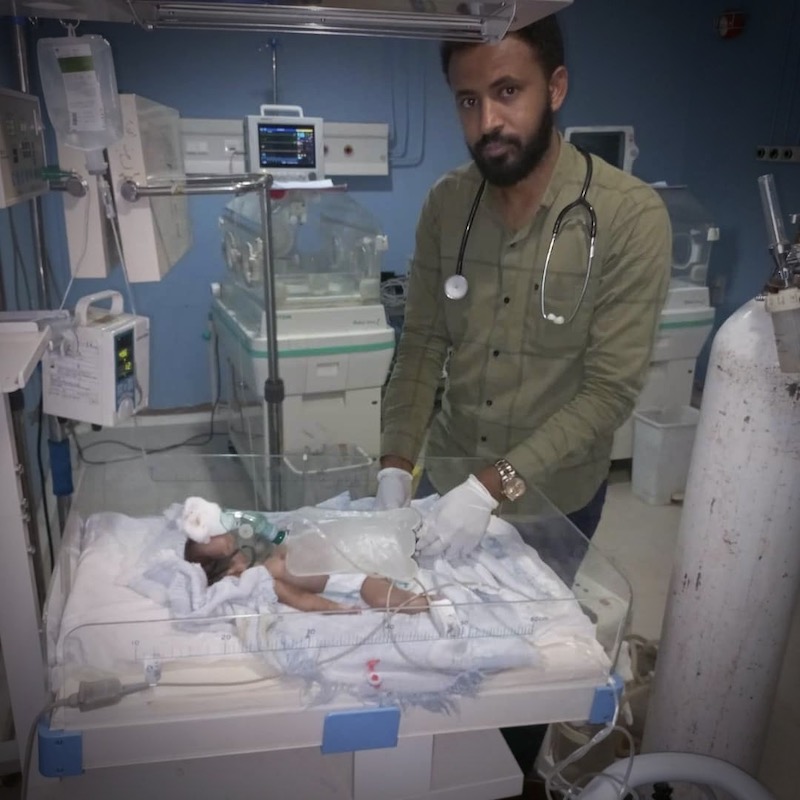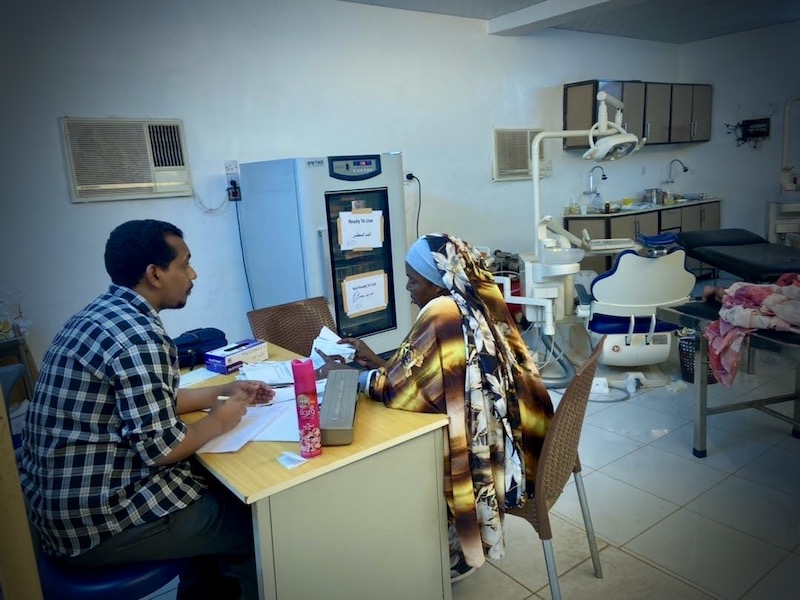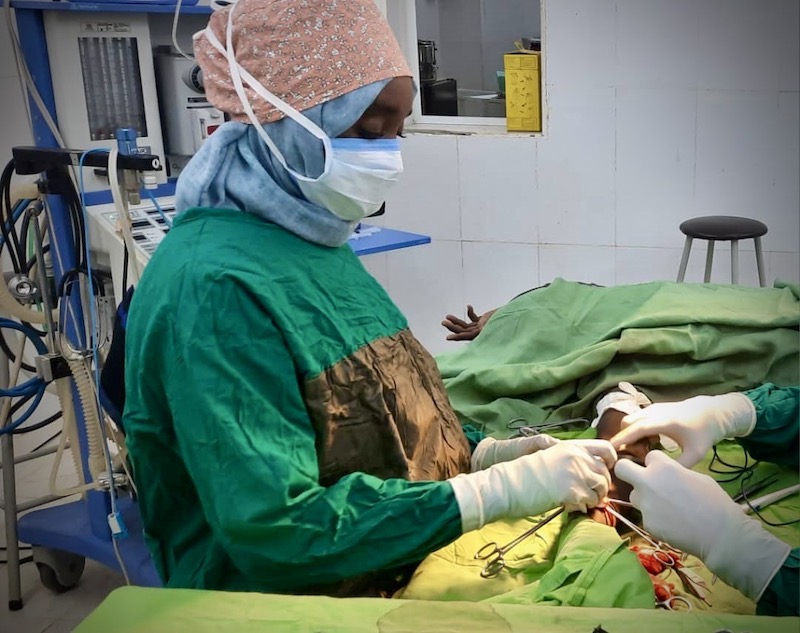When Sudan’s civil war erupted in April 2023, health care providers had to drastically re-tool their skills to adapt care for their patients, with even fewer resources. Already using the ECHO Model before the war, the Sudanese American Medical Association pivoted their ECHO infrastructure to answer the crisis, modifying existing technology and staff support into trauma-related surgical residencies.
The Trauma ECHO meets every other week with experts, including general surgeons and vascular surgeons. It fills critical knowledge and skills gaps by connecting doctors on the frontlines with global expertise.
Adapting Medical Training in a Time of Crisis
“People need to understand the importance of learning during wartime, especially for doctors who haven’t been trained in war-related injury management,” says Mohamed Almahal, SAMA’s director of humanitarian relief.
Before Sudan’s civil war, SAMA managed six ECHO programs, reaching 3,000 participants in Sudan, Africa and the Middle East; having that existing strong network in place was crucial to its ability to pivot in times of crisis. However, with staff distributed across Sudan and neighboring countries, the war places considerable strain on SAMA’s operations.

A neonatal patient receives care at Al-Buluk Pediatric Hospital in Omdurman, Sudan, during the ongoing conflict. Learning war-time surgery and injury management, including pediatrics, has been important for providers across the country. Photo Credit: Unknown
The Power of Connection: Trauma ECHO in Action
SAMA lost an integral member of their team just 10 days after the war erupted: Dr. Bushra Mohammed Ibnauf Sulieman, the organization’s co-founder. “We are all motivated to continue his legacy and to extend Project ECHO to adapt into new situations,” says Almahal; he remembers Dr. Sulieman thoughtfully included young medical students in SAMA’s ECHO programs, fostering a sense of comradery and mentorship.
One area of focus in the Trauma ECHO sessions has included injuries to the chest cavity and upper body. “People attending—and sometimes all the doctors in a single hospital attend—ask questions like, ‘What should I do if my patient is hypertensive?’ or ‘What should I do if someone was stabbed in this area close to the neck?’” says Almahal. “Sometimes I feel very emotional because people would die if this session didn’t happen, and if this knowledge wasn’t shared,” he adds.
Nearly one year into the Sudanese civil war, the Trauma ECHO continues to provide indispensable skills and hope.
“[ECHO] brings high-quality people, with high-quality minds, who want to give back to the Sudanese people: almost all of our experts are Sudanese doctors who were trained elsewhere in the world,” Almahal says, adding:
“We don’t pay for those experts [to share their knowledge]; they have reasons to give back to the Sudanese people. Project ECHO is the only way we have to get this education.”

At the oncology unit in Al-nau Hospital, doctors find ways to continue prescribing care for cancer patients during the civil war. Photo Credit: Unknown
For more information, or to support the Sudanese American Medical Association’s work, visit their website.
Featured Image: Dr. Alaa Mohammed, Trauma ECHO participant, operates on an urgent wound at Al-nau Hospital in Omdurman, Sudan. Photo Credit: Unknown

